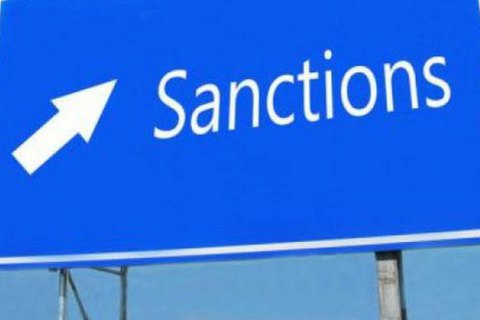The harmful effect of anti-Russian EU sanctions on the German economy is exaggerated, Ukraine's ambassador to Germany, Andriy Melnyk, has said in an exclusive interview with LB.ua.
"Let me mention just one comparison: German exports to Russia in 2015 amounted to more than 21bn euros. During the same period total German exports across the world grew by 6.4 per cent. This, in absolute terms, amounts to more than 70bn euros. That is, how can we speak about the allegedly "catastrophic" losses for the German economy due to the sanctions, if currently the whole Russian market - let us assume, it suddenly disappears tomorrow - ensures less than a third (!) of the growth of German exports. And this is as much as Germany exports to Hungary," Melnyk said.
Thus, the total amount of German exports suggests a minor role of Russia in the German trade. "And taking into account that Germany's total exports in the past year amounted to 1,200bn euros (!), any talk of the strategic importance of Russia is simply ridiculous," the diplomat said.
Melnyk stressed that the figures show that the reporting on the so-called "losses from sanctions" is often exaggerated. "But people, unfortunately, reacted very emotionally, this issue is easy to manipulate. After all, populism in Germany is booming, trust me, no less than in Ukraine," he said.
"(The losses from sanctions) it is a big myth. And I say this from my own experience. I traveled all over Germany, which is a state with a federal system. And the first question I asked during my visits to the local chambers of commerce - how did the sanctions against Russia affect you? So - nowhere, neither in the Federal Ministry of Economy, nor at the level of lands did they give me any estimates, like these are the losses from EU sanctions, and here are our losses from the embargo imposed by Russia. Unfortunately, very few people distinguish between the two," he said.
According to him, only the Agrarian Federation quoted a figure of around 800m-900m euros which German farmers allegedly lost per year because of the banned access to the Russian dairy market. "But then again, this amount is the sum of the losses, which are mainly linked to the fall in milk prices as a result of market liberalisation within the EU, as well as the abolition of quotas. And our partners admit it when I meet them," the ambassador explained.
"But, nevertheless, many politicians continue to speculate on the Russian factor because rural residents present a very serious electoral base," he added.
As an example, he mentioned the land of Saxony, which has always had very close contacts with the former Soviet Union and now with the Russian Federation. "So, one of the leaders of the land told me the following story: in 2014 he convened a meeting with Saxon companies which allegedly suffered from the sanctions. There appeared to be as "much" as about 20 such companies. They began to dig deeper, look at the balance sheets and eventually found out that only (!) company suffered true losses because it could not sell pumps subject to the EU sanctions. Having received assistance from the land government, the company has found within a year new markets, increased production, and now sells these pumps, including in Ukraine," Melnyk said.








